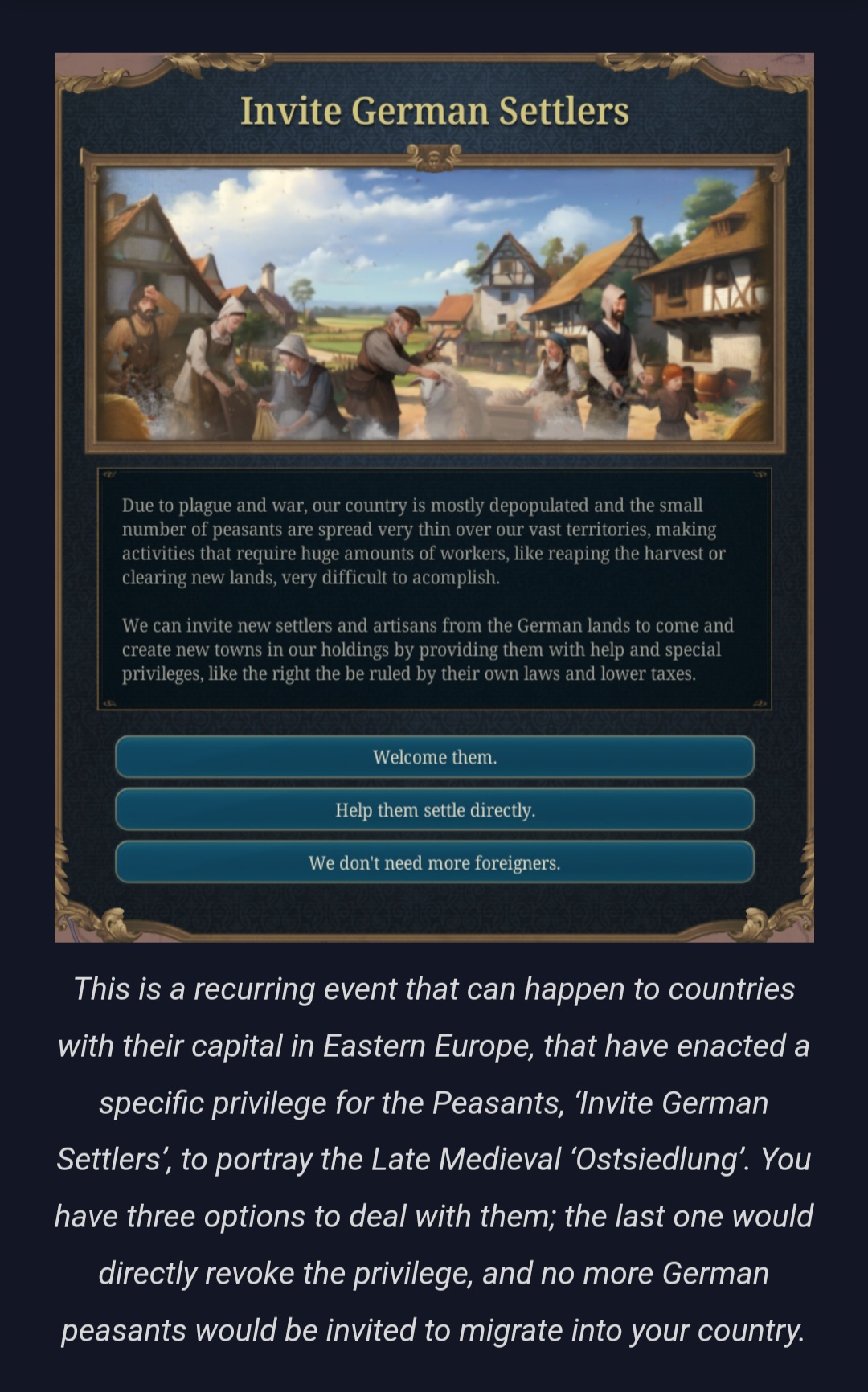This may be something useful for later in the game, maybe a decision for a formable Russia or something similar, Catherine the Great's Greek Project:

en.wikipedia.org
A 20th-century reconstruction of the proposed Greek Plan of Catherine the Great: in red, the "Neo-Byzantine Empire" for her grandson Konstantin, in blue the "Kingdom of Dacia" for Grigory Potemkin, in yellow the compensations for the Habsburg Empire and in blue-green those for Venice.
Catherine the Great dreamed of Russia conquering Constantinople and setting her second grandson, Konstantin Pavlovich, on the throne of a restored Neo-Byzantine empire.
According to their plans, the Ottoman Empire was to be replaced by the establishment of a new empire in the East, the identity of which was ascribed alternatively to a restored Byzantine Empire and to ancient Greece The throne of the new empire was to go to Catherine’s grandson Konstantin Pavlovich (1779–1831) – Pavel Petrovich’s son – on the only condition that he and his descendants would forever abandon all claims to the Russian crown. In such way, two state entities were to coexist, ruled by two Russian brothers – Alexander and Constantine.
The creation of a further, allegedly independent state – Dacia, incorporating Moldavia, Wallachia and Bessarabia, – was also envisaged Dacia would act as a buffer state between Russia and Austria, which the Empress was trying to involve in the dismantling of the Ottoman Empire Potyomkin himself strived for ruling the territory.
The idea never assumed the form of a public formulation, but it was fully expressed by Catherine in a memorandum addressed to the Austrian emperor Joseph II on 10 September 1782 The letter followed a secret alliance Catherine signed in 1781 with Joseph II, which was to be confirmed by the journey of her son Pavel Petrovich to the Habsburg Court A few months after the alliance was contracted (in the form of letters between the two sovereigns), the Grand Duke was received in Vienna – the main stopover of his European grand tour – with the staging of Gluck’s operas Iphigénie en Tauride and Alceste Both these works are based on subjects connected with ancient Greece.
'One of the great love stories of history, in a league with Napoleon and Josephine, and Antony and Cleopatra ... Excellent, with dazzling mastery of detail and literary flair' EconomistIt was history's most successful political partnership - as sensual and fiery as it was creative and visionary...
books.google.ro
Unlike the other soruces, this does not come from a historian but a Youtube video, so take it with a grain of salt:







